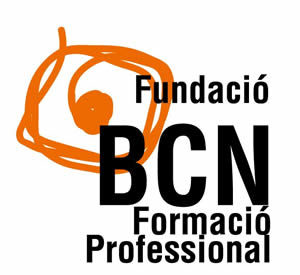The Sustainable Construction in terms of VET study, promoted by Barcelona Activa and prepared by the Observatory of the BCN Vocational Training Foundation, analyses the dynamics of the construction sector in the territory of the Metropolitan Area of Barcelona to find a fit between the gap of talent in the productive fabric, the sustainable and digital transition and the role of vocational training (FP) as a qualifying vector. Construction is analyzed as a value chain that relates the activities of building and civil works, with activities such as installation, maintenance, wood, water, waste, or energy, given the close relationship with sustainable development.
The new paradigms about technology, digitization, materials, and construction processes are, as a whole, the main motivation for the elaboration of this study, not only because of their importance in the fight against climate change but also because of the opportunities they offer for the qualification and empowerment of human talent. In this sense, various job opportunities are detected that promote the sustainable and digital transition, through new housing projects, public works, building maintenance, and energy efficiency improvement.
The study highlights the need to promote certain changes in the sector to enhance talent attraction, and thus achieve a sustainable transition that will not only make construction more competitive but is necessary to adapt to the global climate challenges.
Strengthening skilled labor
New profiles are emerging with renewable energy specialties, circular economy, or 3D modeling and impressions, in addition to those classic trades, among which, delineators, palettes, and heads of work, which require recycling in the world of work of the present and future. It is thus noted that the sector still has a wide margin for development in terms of sustainability and digitalization, and the need to strengthen a skilled workforce where there is difficult profile coverage, as pointed out by the productive fabric and experts. It is therefore a priority to nurture the sector of professionals who promote this transition to the construction value chain.

Thus, the agents of the value chain transmit that VET as well as reskilling training can be a valid vehicle to cover these needs since they allow a green and digital transition to the qualification of construction professionals in those professions that demonstrate the most employability. The acquisition of competencies in ecodesign, bioconstruction, or Smart Buildings are some examples.

To carry out this study and conclusions in the field of employment in construction, 14 partners with different links to the world of construction have collaborated: guilds, clusters, professional associations, training centers, associations, and foundations to support the sector. 113 companies have participated, 14 VET teachers from the Building and Civil Works family and 15 experts from various links in the construction value chain.
Access to study:





